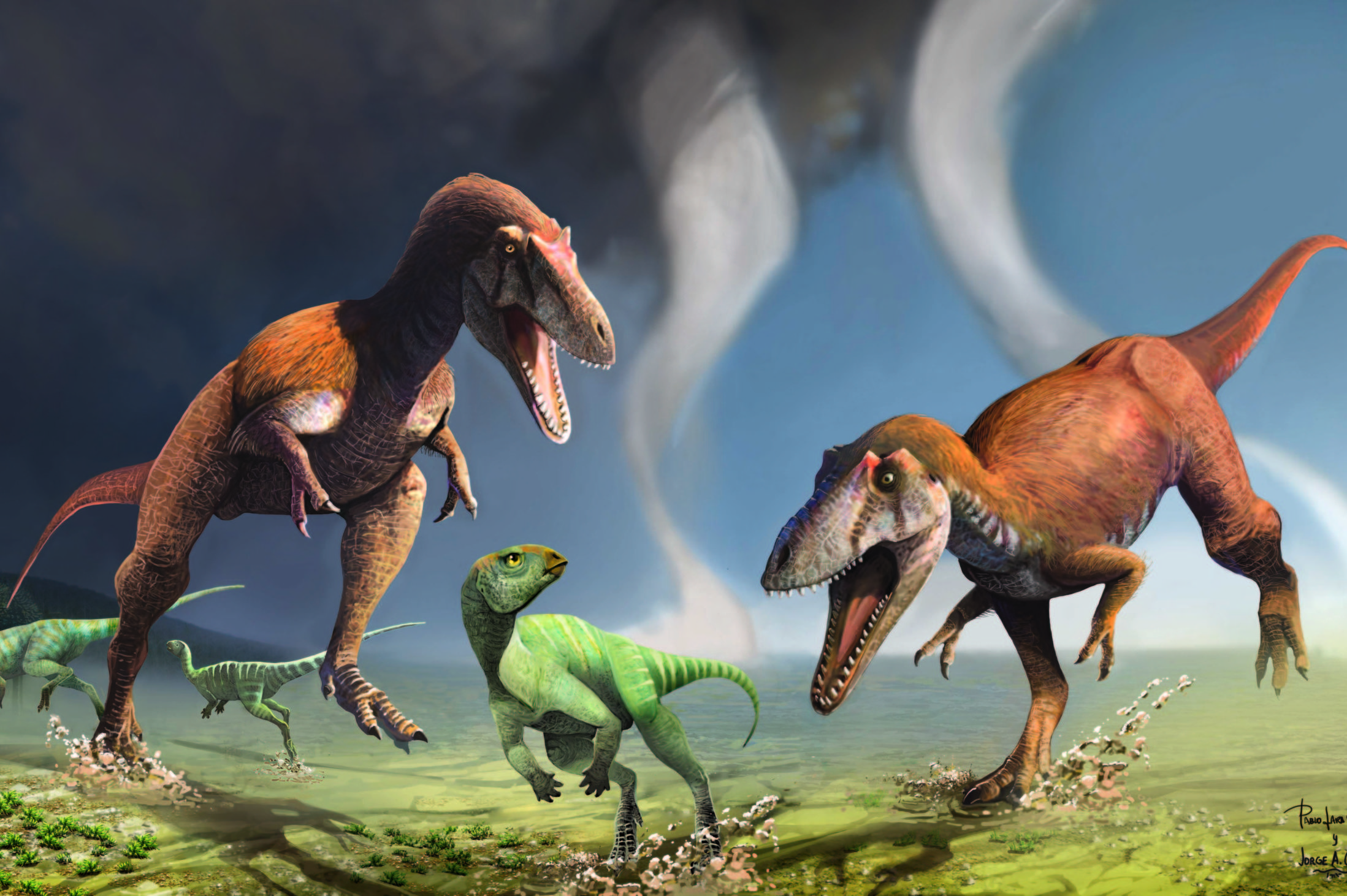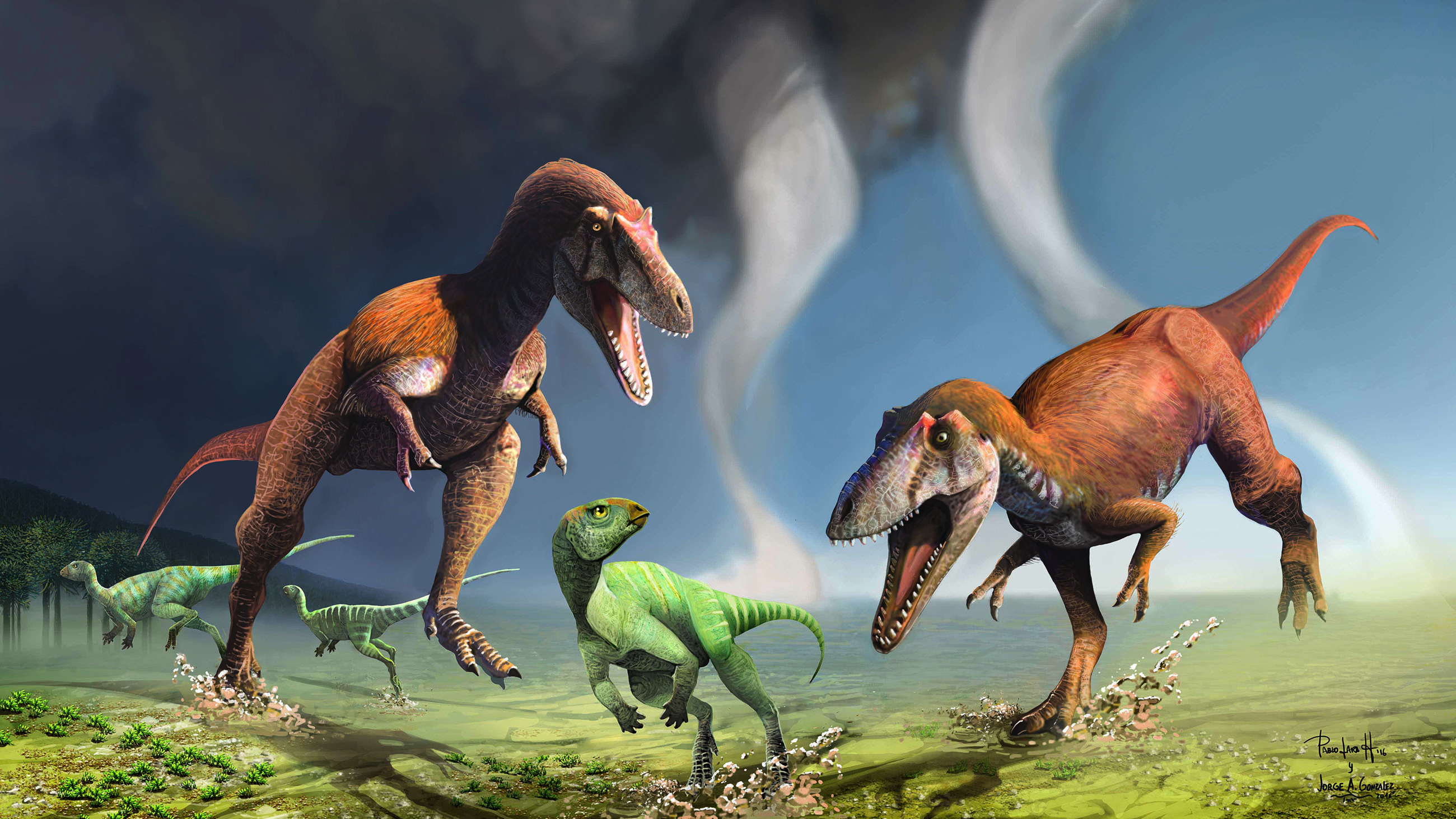The Ferocious Dinosaur and the Invisible Scientists
The following article appears in both English and Spanish. You can find the Spanish version here.
— Translated by Jane Roberts
Argentina has five unofficial ambassadors, for whom the country is known throughout the world: soccer stars Lionel Messi and Diego Maradona, literary giant Jorge Luis Borges, Pope Francis, and the dinosaurs.

Throughout this vast country’s extensive territory, from Jujuy in the north to Tierra del Fuego in the south, there are fossils — remains from the ancient kings of the earth, the largest animals ever to walk the planet.
Here, dinosaurs are both an industry — driving paleontological tourism — and a matter of state. As a result, constant announcements of new scientific discoveries give rise to waves of national celebration. And this is precisely what happened this month. After nine years of work and countless bureaucratic hurdles, paleontologists unveiled the Gualicho shinyae, a new species of carnivorous dinosaur that lived in northern Patagonia 90 million years ago. “We were surprised, we weren’t expecting it,” said Sebastián Apesteguía, a paleontologist who previously discovered Buitreraptor gonzalezorum, the first complete raptor in the Southern Hemisphere; Najash rionegrina, a snake with hind legs; and a small mammal known as the Cronopio dentiacutus, among many others.
As was expected, news of the discovery, which involved researchers from the Field Museum in Chicago and the Dinosaur Institute at the Natural History Museum of Los Angeles County, quickly spread around the world. But one small detail stood out: the names of the Argentinian scientists, like Apesteguía, and the organizations they belong to, including the Félix de Azara Foundation of Natural History and Argentina’s National Scientific and Technical Research Council (Conicet), were nowhere to be found.
The New York Times, BBC, New Scientist, Wired, The Guardian, Mic, Daily Mail, Science Daily, Popular Science, The Christian Science Monitor, and the Australian magazine Cosmos — none of them mentioned Aspesteguía. For these English-language media outlets, the discovery was wholly American. In telling the story of the dinosaur and its tiny arms, similar to those of the T. rex, the articles centered on Peter Makovicky, associate curator at the Field Museum in Chicago, and co-author of a paper published with Apesteguía in the journal PLOS One.
There were news outlets, like USA Today, LiveScience, China’s CNTV, and of course many Spanish-language publications, that covered the discovery in a more balanced way. But the striking omission of Apesteguía in many others adds to the evidence of a recurring problem in science journalism: information bias. Each time American or British scientists collaborate with Latin Americans, English-language news outlets privilege the researchers from the First World.
This is not an isolated case, but rather a systematic bias that puts Latin American scientists on a lower tier. A similar thing happened in 2014 with the discovery of the Dreadnoughtus schrani. And we saw it again again last week when PLOS One published a paper about the discovery of another carnivorous dinosaur in Argentina, in this case Murusraptor barrosaensis discovered by an Argentinian, Rodolfo Coria, and a Canadian, Philip Currie. The CBC News headline was: “Edmonton Professor discovers new ‘megaraptor’ in Argentina”; Coria was mentioned later in the story.
This recurring bias goes beyond the issue of language. It helps to elevate one source above another. The disappearance of these voices contributes to a picture that is more mediated than real: the lack of Latin American science in the global news mix. The result is more of the same: a vision less diverse and less heterogeneous than the reality of scientific activity in the 21st century.
Federico Kukso is an Argentinian science journalist. From 2015 to 2016, he was a fellow in the Knight Science Journalism Program at MIT. He’s the author of the book “Todo Lo Que Necesitas Saber Sobre Ciencia” (“Everything You Need to Know About Science”).











Comments are automatically closed one year after article publication. Archived comments are below.
People who use “privilege” as a verb, unironically, are ignored.